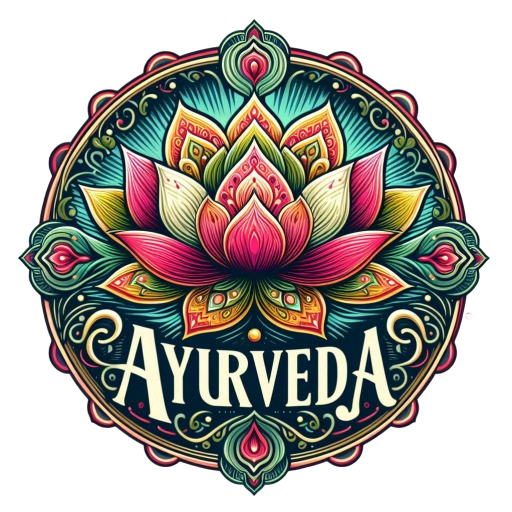Ayurvedic medicine, one of the oldest healthcare systems in the world, has been practiced for over 5,000 years in India. Derived from the Sanskrit words “Ayur” (life) and “Veda” (knowledge), Ayurveda emphasizes a holistic approach to health, focusing on the balance of mind, body, and spirit. This article explores the principles, treatments, and benefits of Ayurvedic medicine.

The Foundations of Ayurveda
Ayurveda is built on the belief that health is a state of balance among three vital energies, known as doshas: Vata, Pitta, and Kapha. Each dosha is composed of the five elements—space, air, fire, water, and earth—and governs specific physiological and psychological functions in the body.
- Vata Dosha: Representing space and air, Vata is responsible for movement, circulation, and communication. Individuals with a dominant Vata tend to be creative but may experience anxiety and restlessness when out of balance.
- Pitta Dosha: Comprising fire and water, Pitta governs digestion, metabolism, and energy levels. Pitta-dominant individuals are often driven and ambitious but can become irritable or competitive when out of balance.
- Kapha Dosha: Formed from water and earth, Kapha provides stability, structure, and immunity. Those with a dominant Kapha are typically calm and nurturing but may struggle with lethargy or weight gain when out of balance.

Diagnosing Dosha Imbalances
Ayurvedic practitioners use various methods to assess an individual’s dosha and identify imbalances. These methods may include:
- Observation: Evaluating physical appearance, skin tone, and body structure.
- Pulse Diagnosis: Checking the pulse to determine the state of doshas.
- Questionnaires: Gathering information about lifestyle, dietary habits, and emotional well-being.
Ayurvedic Treatments
Ayurvedic treatments are personalized and may include a combination of the following:
1. Herbal Medicine
Herbs play a crucial role in Ayurvedic medicine. Commonly used herbs include:
- Ashwagandha: Known for its stress-relieving properties.
- Turmeric: An anti-inflammatory agent that supports overall health.
- Ginger: Aids digestion and can help alleviate nausea.
Herbal remedies are typically tailored to the individual’s dosha and specific health concerns.

2. Dietary Guidelines
An Ayurvedic diet focuses on fresh, whole foods tailored to balance the doshas. Key principles include:
- Eating Seasonally: Consuming foods that align with the seasons.
- Mindful Eating: Fostering a calm eating environment to improve digestion.
- Balancing Flavors: Incorporating all six tastes (sweet, sour, salty, bitter, pungent, and astringent) to create harmony in meals.
3. Panchakarma
Panchakarma is a detoxification process designed to cleanse the body of toxins and restore balance. It typically involves five main therapies:
- Vamana: Therapeutic vomiting to expel excess mucus.
- Virechana: Purgation therapy for cleansing the digestive tract.
- Basti: Enemas using herbal oils or decoctions to detoxify the colon.
- Nasya: Nasal administration of herbal oils to clear the sinuses.
- Raktamokshana: Bloodletting for purification.
4. Yoga and Meditation
Yoga and meditation are integral components of Ayurvedic practice. They promote physical flexibility, mental clarity, and emotional balance. Regular practice can enhance overall well-being and reduce stress.
5. Massage and Bodywork
Ayurvedic massages utilize herbal oils and specific techniques to promote relaxation, relieve tension, and improve circulation. Abhyanga, a warm oil massage, is especially popular for its rejuvenating effects.
Benefits of Ayurvedic Medicine
Ayurvedic medicine offers a range of potential benefits:
- Holistic Health: Focuses on treating the root cause of health issues rather than just symptoms.
- Personalized Care: Treatments are tailored to individual needs and dosha imbalances.
- Disease Prevention: Emphasizes lifestyle changes and preventive care to maintain health.
- Improved Well-Being: Many individuals report enhanced physical health, mental clarity, and emotional stability.
Safety and Considerations
While Ayurvedic medicine can be beneficial, it’s essential to approach it with caution:
- Consult a Qualified Practitioner: Seek advice from trained Ayurvedic practitioners to ensure safe and effective treatments.
- Check for Contaminants: Be aware that some Ayurvedic products may contain heavy metals or other harmful substances. Always opt for products from reputable sources.
- Combine with Conventional Medicine: If you are undergoing conventional medical treatments, discuss any Ayurvedic practices with your healthcare provider to avoid potential interactions.
Ayurvedic Medicine FAQs
1. What is Ayurvedic medicine?
Ayurvedic medicine is a holistic healing system that originated in India over 5,000 years ago. It emphasizes the balance of mind, body, and spirit through personalized treatments and lifestyle practices.
2. What are the main principles of Ayurveda?
Ayurveda is based on the belief that health is achieved through the balance of three doshas—Vata, Pitta, and Kapha—each governing different physiological and psychological functions.
3. How do I determine my dosha?
Your dosha can be assessed through a consultation with an Ayurvedic practitioner, who may use observation, pulse diagnosis, and questionnaires to identify your unique constitution and imbalances.
4. What types of treatments are offered in Ayurveda?
Ayurvedic treatments may include herbal medicine, dietary guidelines, Panchakarma (detoxification therapies), yoga, meditation, and various forms of bodywork like Ayurvedic massage.
5. Are Ayurvedic herbs safe to use?
While many Ayurvedic herbs are safe and beneficial, it’s essential to consult a qualified practitioner to ensure they are appropriate for your specific health needs and to avoid potential interactions with other medications.
6. What is Panchakarma?
Panchakarma is a detoxification and rejuvenation process that includes five main therapies to cleanse the body of toxins and restore balance. It is tailored to individual needs based on dosha imbalances.
7. Can Ayurveda be combined with Western medicine?
Yes, Ayurvedic practices can complement Western medicine. However, it’s important to discuss any Ayurvedic treatments with your healthcare provider to ensure safety and avoid interactions.
8. What are the potential benefits of Ayurvedic medicine?
Ayurvedic medicine can promote holistic health, provide personalized care, emphasize disease prevention, and improve overall well-being, including physical, mental, and emotional health.
9. Is there scientific evidence supporting Ayurveda?
While more research is needed, some studies suggest that Ayurvedic practices can be effective for certain conditions, such as chronic pain and stress management. It’s always good to consult with qualified practitioners for evidence-based guidance.
10. How can I find a qualified Ayurvedic practitioner?
Look for practitioners certified by recognized Ayurvedic organizations, such as the National Ayurvedic Medical Association, and ensure they have proper training and experience in the field.
Conclusion
Ayurvedic medicine offers a comprehensive, time-tested approach to health and wellness. By focusing on balance, prevention, and personalized care, it empowers individuals to take charge of their health in a holistic manner. Whether you’re looking to address specific health concerns or simply enhance your well-being, exploring the principles of Ayurveda can be a transformative journey toward a healthier, more balanced life.

